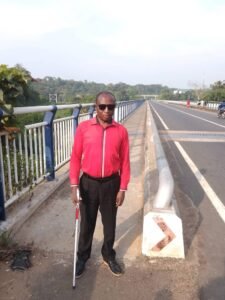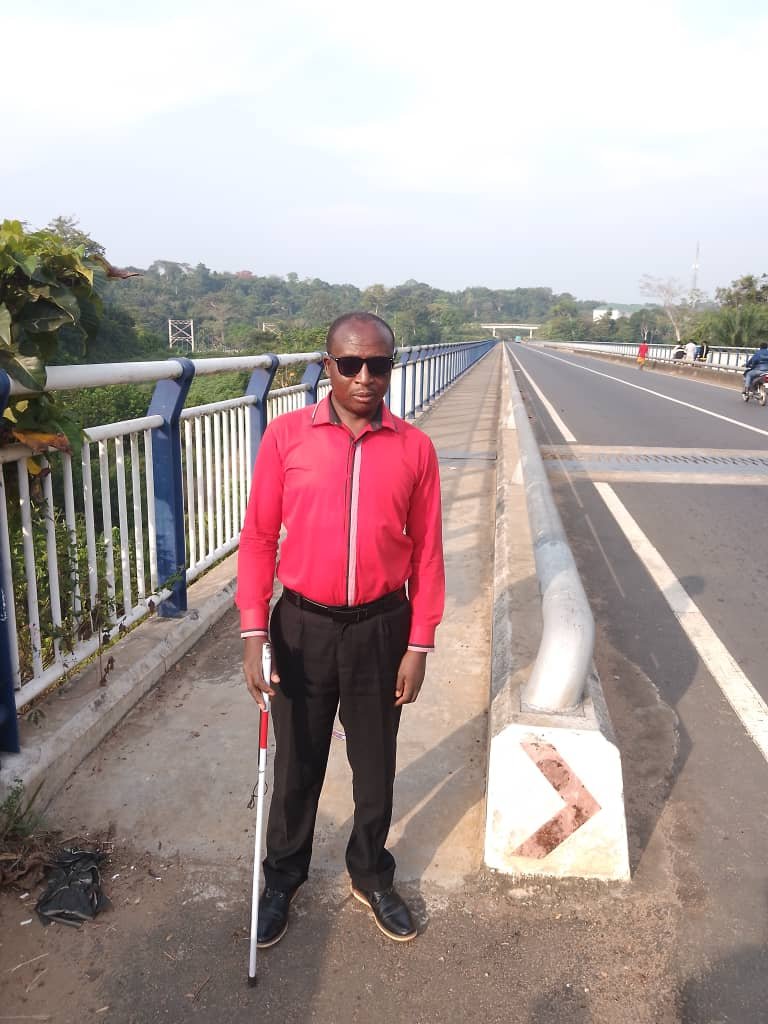It is a decisive moment in the political history of Cameroon as citizens hope for a new president for the first time in 43 years. Amidst loud cries for change, persons with disabilities, who constitute about 15% of the population, have expressly questioned why no candidate has a disability agenda in their manifesto.

By Princely Kesah, Cameroon.
Twelve candidates will contest the top office on October 12, 2025, and, sadly for Cameroonians with disabilities, not even one of the twelve has a line in their manifestos about what the next seven years would look like for this large minority group of 3.48 million persons. Amidst such structural exclusion, the disability community understands how consequential silence would be at this time. Every person with a disability is anxious to know what their potential president has for them ahead of the polls, and they have started speaking up strongly through their leaders.
One of those leading the campaign to call the presidential candidates to task is Charly R. Nyugap, Associate Professor of Special Needs and Inclusive Education at the University of Buea, a state-run institution in the Southwest region. Speaking in an exclusive interview with DNA recently, the university don, cum leader of Disability Rehabilitation and Live Animation, a not-for-profit organisation, unapologetically calls on the election candidates to intentionally think of and consider persons with disabilities (PWDs) in their action plans, intimating that inclusion is a right and not a choice. “We expect that the candidates should have been talking about the agenda they have for persons with disabilities, but not one of them is saying anything,” he reveals, his face wrapped with sadness.
Cameroon is not only a signatory to the UN Convention on the Rights of Persons with Disabilities (UNCRPD) adopted in 2006; the country took a step to pass a national law on the Protection and Promotion of Persons with Disabilities in 2010 and ratified the UNCRPD eleven years later, with both legal instruments expressly calling for the meaningful inclusion and equitable participation of PWDs in political processes. Building on these legal instruments, the disability rights crusader, Charly R. Nyugap, wonders why PWDs don’t seem to matter. He says Cameroonians must learn to value minority populations in all spheres of national life for meaningful political and economic development to happen, citing the Anglophone Conflict as a clear example of how the neglect of a minority can drain a country.
The exclusion of PWDs from political processes in Cameroon is glaring, with only 33,985 of them registered on the electoral list, according to figures released by ELECAM, the country’s election management body. Of this number, many will not be able to vote because of the inaccessibility of polling stations, among other barriers. To Professor Nyugap, the time to pressure the presidential candidates to include PWDs in their manifestos is either now or never. “The next seven years would be very bleak for PWDs in terms of government support because a president can only be held to task based on the manifesto which he presented to the electorate. That is the contract that binds them,” he says, his voice thick with seriousness.
Another person who has spoken up against the intentional neglect of persons with disabilities by the twelve presidential candidates is Princeley Njukang, Desk Editor of Disability News Africa. In a strongly worded opinion piece recently, the disability rights journalist recounts how he was thrown out of a secondary school in Buea on the grounds that his visual impairment would contaminate “bright-sighted students.” This was prior to the 2018 presidential election, and the young man expected to hear even one candidate address the plight of persons with disabilities. If you think he got any one of them to mention a word about persons with disabilities, then you are misled. This year, Njukang, who has become a disability rights journalist covering the election, regrets that he and his millions of peers don’t matter. “Why are we so invisible, why are we so insignificant as to not earn even a line in their manifestos?” he questions.
Both Professor Nyugap and Njukang entreat civil society, the media, and disability rights organisations to stand up and speak on behalf of the neglected 3.48 million Cameroonians with disabilities. To them, PWDs are citizens of Cameroon and should enjoy political rights like any other denizens do.
